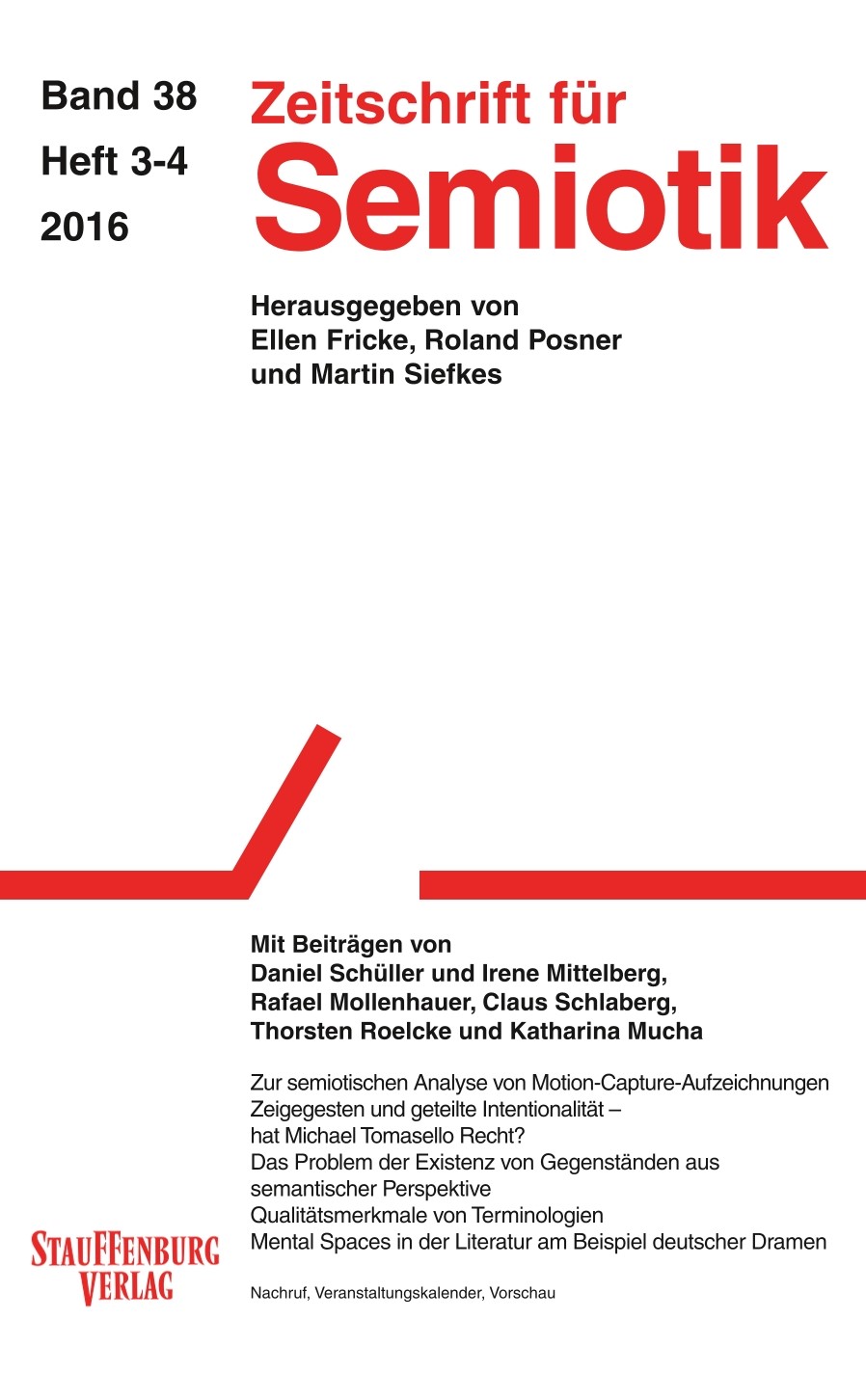Was heißt „Vorhandensein“? Die kulturwissenschaftliche Relevanz einer Klärung
DOI:
https://doi.org/10.14464/zsem.v38i3-4.637Keywords:
truth-fulfilling entities, truth-condititonal semantics, semantic externalism, proposition, sentence semantics, first-order logic, experience, theory of science, Alfred Tarski, Edmund HusserlAbstract
Summary. This contribution builds on the idea of integrating truth-fulfilling entities into a truth-conditional semantics. It asks which kind of truth conditions are to be considered for statements of something being really there – as opposed to just being an intentional object. The adverbial theory of perception treats experiences, for example appearances (visual experiences), as ‘adverbially’ classified. As a further approach towards how an object is related to its appearance (being experienced visually), semantical externalism is considered. On this basis, it is proposed that the notion of existence can be understood as a disposition to be experienced: y being really there is explicated as a disposition to experiences that are adverbially characterized as y-experiences. This approach helps to understand the different perspectives of the natural sciences and the arts and humanities. While the natural sciences are directed towards y, the arts and humanities primarily deal with y-experiences.
Downloads
Published
Issue
Section
License
Copyright (c) 2023 Claus Schlaberg

This work is licensed under a Creative Commons Attribution 4.0 International License.
Copyright for articles published in this journal is retained by the authors. The content is published under a Creative Commons Licence Attribution 4.0 International (CC BY 4.0). This permits use, distribution, and reproduction in any medium, provided the original work is properly cited, and is otherwise in compliance with the licence.


